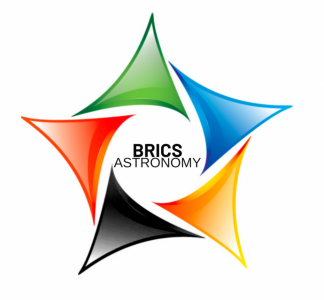
BRICS Astronomy and the Inter-University Institute for Data Intensive Astronomy (IDIA) are excited to announce an opportunity for participants to engage in an innovative training course that blends data science, and machine learning (ML) with practical applications to Astronomy. This 8-week virtual program aims to empower individuals at all skill levels, from beginners to advanced users, to deepen their understanding of data science concepts and enhance their research capabilities. The training program will provide hands-on learning experiences across core areas of data science and machine learning, emphasising real-world applications in Astronomy. Throughout the course, participants will be guided in using these tools to manage, analyse, and interpret large datasets, while also exploring new possibilities for innovative research within the BRICS countries and IDIA.
Key Objectives
- Enhance Skills: Equip participants with the knowledge and practical tools that will allow them to effectively manage and analyse scientific data.
- Foster Innovation: Support the development of applications in machine learning for use in astronomy and related scientific fields.
- Build Community: Create a collaborative space for participants to share ideas, challenges, and solutions, strengthening the broader research network.
Who Should Apply?
This program is designed for early career professionals, university students, and individuals working within the field of Astronomy who are looking to upskill themselves, particularly those from BRICS member countries. If you are eager to enhance your data science skills in fields like Astronomy, Bioinformatics, or other STEM disciplines, this program is for you. This program covers key topics such as Python programming, data structures, control flow, data analysis, and handling astronomical data. You’ll also explore statistical and time series analysis, and machine learning basics for astronomy, and complete a capstone project to showcase your skills.
What’s Required?
- Basic Knowledge: No prior experience is required for beginners. However, participants should be interested in Python programming, data science, and astronomy.
- Tools: Access to a working personal computer and internet access to participate in the virtual training fully.
- Commitment: The participant should commit to attending all virtual sessions during the 8-week course. The participants will also be required to work on the course material in their own time and participate in online discussions.
Training Structure
The virtual program will span over 8 weeks, with a new topic covered each week. Each week’s session will include:
- Workshopping: Focused on core data science and programming skills.
- Hands-on Coding: Practical learning of data science tools and techniques.
- Interactive Q&A Discussions: Opportunities to ask questions and gain deeper insights into the training material.
- Resources: A week before each session, participants will be given the training material based on the week’s topic, including various problem sets and resources to work on in preparation for the week’s session.
- Tutors: Tutors will be available weekly to support participants and help with problem-solving.
Project Timeline
- Applications open: 17 February 2025
- Application Deadline: 04 April 2025
- Approximate Program Start Date: 05 May 2025
- Approximate Program End Date: 01 August 2025
Application Process
- Apply Online: Complete the online application form where you can declare your interest and outline your goals for the program.
- Selection Criteria: Applicants will be selected based on interests, relevant experience, and alignment with the program’s objectives.
If you have any questions or need assistance with the application email duduzile@saao.ac.za


-
Mission of the BRICS Astronomy Working Group
-
The mission of the BRICS Astronomy Working Group is to promote cooperation between BRICS member countries in the field of astronomy and enabling technologies through joint activities of government, universities, research institutions, and industry, as relevant, to develop astronomical sciences, generate new knowledge, train human capital, develop new technologies and applications, and improve public understanding of science.
